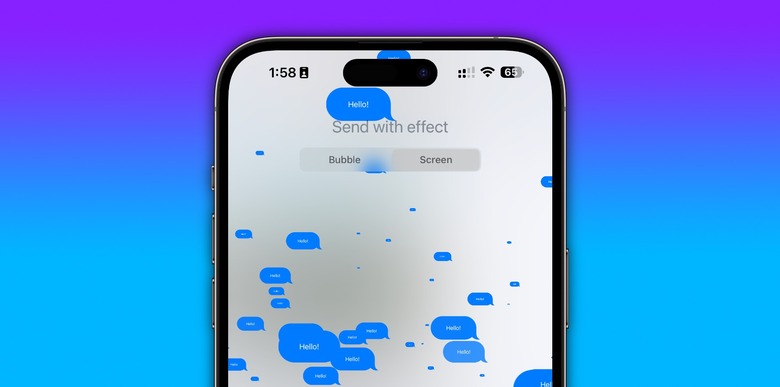No, Apple Shouldn't Cave To Google's Pressure To Adopt RCS - Not Yet, At Least
It's another day that ends in y, which means Google is taking more potshots at Apple for its refusal to adopt RCS, a minor upgrade to SMS, which the company has been pushing on Android for years. Part of the argument for RCS on iPhones and other Apple devices is it would allow iMessage-like communication between iPhone and Android. But the issue isn't that simple.
See, RCS as a "modern standard" is a bit of a joke. Sure, it's newer than SMS, but it still isn't strictly modern, and the RCS that Google is pushing isn't even the open version of RCS that many people might think it is.
Created in 2008, RCS was a carrier-centric message standard, something that Ars Technica covers well in its own opinion piece. RCS was created back when pay-per-message SMS was still a thing, and it was a great way to siphon more cash out of a carrier's paying customers.
Since RCS is essentially just carrier messaging, the messages are only delivered to a single carrier phone number, which means there isn't any encryption as a base standard. So why is Google pushing end-to-end encryption as a big selling point for putting RCS on iPhone? Well, it all comes down to Google's proprietary version of RCS.
Part of the appeal of iMessage for Apple is that it helps lock users into its ecosystem. Opening up the use of iMessage on Android, too, would only hurt Apple in the long run. There's nothing for the company to gain, especially if it adopts Google's version of RCS, which puts all the control in Google's hands.
Sure, it would add end-to-end encryption, but it would be running through Google's servers. This means that the company has more than just "public goodwill" to benefit from in this particular issue. Sending all of the iPhones' texts through Google's servers means Google gets more data, even when it isn't coming from phones that utilize the company's operating system.
And that's the sticking point here for me, especially when looking at how beneficial fully-realized RCS could be. Ultimately, though, we already have messaging services like Signal and Telegram, which feature everything Google promises without forcing Apple to give up what it already offers with iMessage. And with those alternatives on the market, why would Apple ever give up iMessage exclusivity and opt into Google's RCS on iPhone?
It makes zero sense, and honestly, if the only option is to accept whatever Google is pushing as RCS, then I agree with Apple's stance to remain dedicated to iMessage on Apple devices only. Perhaps one day, we will see a joint operation that lets RCS messaging really shine. For now, though, we'll have to make do with the blue bubble vs. green bubble dilemma.
